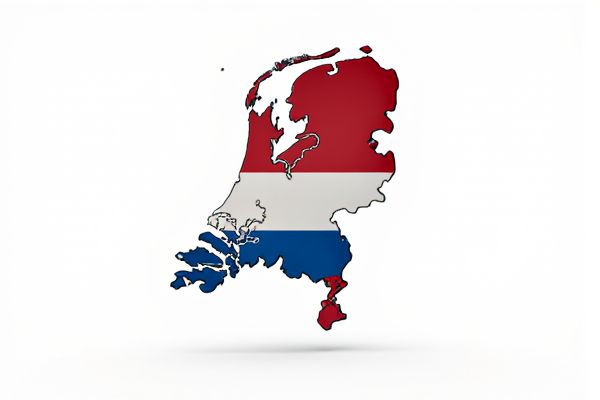
Explore our online Random Address Generator for the Netherlands, designed to provide accurate and realistic Dutch addresses instantly. Perfect for testing, data entry, and software development, this tool ensures reliable and diverse address outputs tailored to your needs. Use it effortlessly to enhance your projects with authentic location data from across the Netherlands.
Online tool for random address generator netherlands
Here are several sample addresses generated for the Netherlands, prepared and ready for you to use and randomize. You can also input your own list to customize the results. With a single click, you will receive a randomized list and a single value to use.Data Source
Single Result
Multiple Results
Overview of Random Address Generators in the Netherlands
Random address generators for the Netherlands produce realistic but fictitious Dutch addresses by combining data such as street names, postal codes, and city names from authoritative databases like the Dutch Cadastre (Kadaster). These tools are essential for software testing, data privacy, and application development, ensuring generated addresses comply with local formatting standards and use accurate regional data. Many generators incorporate postal code validation to ensure generated addresses are viable within the Dutch postal system, supporting use cases in telecommunications, logistics, and e-commerce testing.
Key Features of Dutch Address Generation Tools
Dutch address generation tools offer accurate simulation of real Netherlands addresses by incorporating authentic postal codes, street names, and city data. They support integration with systems using standardized formats like the Netherlands' BAG (Basisregistratie Adressen en Gebouwen) dataset, ensuring reliable geolocation and address validation. These tools often feature bulk generation, customizable region-specific filters, and compliance with Dutch data privacy regulations, enhancing usability for developers and businesses.
Common Use Cases for Netherlands Random Addresses
Random address generators for the Netherlands are commonly used in software testing to simulate realistic Dutch locations without exposing personal data. They assist businesses in e-commerce to populate databases with valid Dutch postal codes and street names, ensuring accurate delivery testing. Marketing professionals utilize these tools to create sample datasets for demographic analysis and localized campaign planning within various Dutch municipalities.
Legal and Ethical Considerations in Dutch Address Generation
When using a random address generator for the Netherlands, it is crucial to ensure compliance with Dutch data protection laws, such as the Algemene Verordening Gegevensbescherming (AVG), to avoid misuse of personal data. Generating fictional addresses must not infringe on real residents' privacy or lead to fraudulent activities, demanding careful validation and ethical responsibility. Tools should provide disclaimers clarifying their use for testing or educational purposes, preventing legal repercussions associated with the unauthorized use of legitimate addresses.
Benefits of Using Random Dutch Addresses for Testing
Using random Dutch addresses for testing enhances data validation accuracy by simulating real-world scenarios within the Netherlands' postal system. This approach reduces errors in software development and improves the reliability of location-based applications like e-commerce platforms and logistics services. Incorporating authentic street names and postal codes from the Netherlands ensures compliance with local data formats and enhances user experience during address input processes.
Accuracy and Realism of Dutch Address Generators
Dutch address generators prioritize accuracy by utilizing official postal code databases and real geographic data to produce realistic addresses. These tools integrate valid street names, house numbers, and city information to ensure addresses match the structure and format used by the Netherlands' postal system. This realism supports applications in software testing, logistics simulations, and data validation without compromising privacy by generating fictional yet plausible Dutch addresses.
Popular Random Address Generator Tools for the Netherlands
Popular random address generator tools for the Netherlands include Fake Address Generator, Random Lists, and GenerateData.com, which provide authentic-looking Dutch street names, postal codes, and city information. These platforms are widely used for software testing, data anonymization, and web development involving Dutch geolocation data. Their databases often update regularly to reflect accurate and realistic Dutch addresses for reliable application in diverse projects.
Integration of Address Generators with Dutch APIs
Integration of random address generators with Dutch APIs enhances accuracy by leveraging official data sources such as the Basisregistratie Adressen en Gebouwen (BAG). These APIs provide up-to-date and validated address components, enabling seamless autocomplete and verification functionalities in web and mobile applications. Utilizing BAG's structured data ensures compliance with local standards, improving reliability in location-based services and logistics solutions.
Data Privacy Implications in Dutch Address Generation
Using a random address generator for Netherlands addresses raises significant data privacy implications due to GDPR regulations governing personal data. Generated addresses must avoid real individuals' information to prevent unauthorized use or identity exposure. Ensuring synthetic data complies with Dutch privacy laws helps mitigate risks related to data breaches and misuse in testing or development environments.
Future Trends in Random Address Generation for the Netherlands
Future trends in random address generation for the Netherlands emphasize integration with advanced AI algorithms and real-time geospatial data to enhance accuracy and relevance. Increasing use of machine learning models will allow dynamic updates reflecting urban development and new postal codes issued by PostNL. Enhanced privacy measures and compliance with GDPR will drive innovations in anonymization techniques within address generation tools.
 azrandom.com
azrandom.com